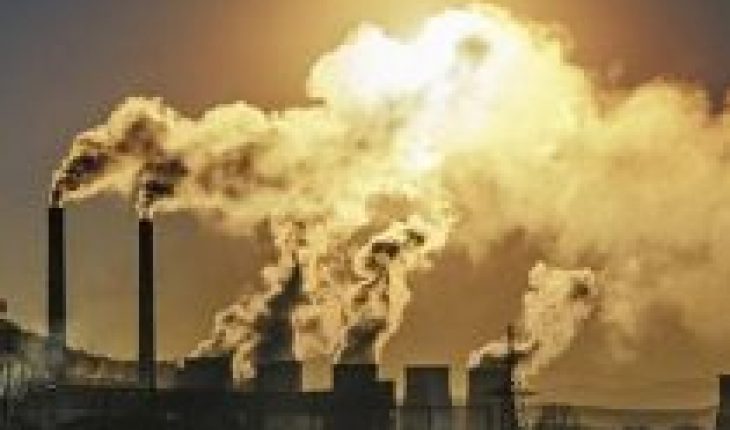The world is on the verge of an energy crisis due to the high demand for fossil fuels in Europe and Asia, which threatens an economic crisis that can fundamentally affect countries dependent on these fuels, such as Chile.
Meanwhile, in this part of the world we discuss the new foundations on which we will build the future of our country, while the world recognizes that we face the greatest challenge ever experienced on a global scale. In the next 50 years we must abandon fossil fuels or we will be at serious risk of starting the extinction of homo sapiens as the dominant species.
All this, due to the abundant sources of fossil energies that we use and that have allowed us to unify the world economy, reduce poverty, increase food production and the average life of people, and expand throughout the planet until reaching a population that will soon exceed 8,000 million human beings.
Today humanity lives physically integrated through financial, technological, commodity, virus and communications exchanges on a global scale, under a system where capital generates more value than labor and land, administered indistinctly by dictatorial, democratic or monarchy governments.
We know that all this has been achieved with a global impact and at a very high cost, only evidenced in the geological records, with irreversible changes in the atmosphere and the environment, which is affecting our living conditions and putting our very existence at risk.
Every time the energy obtained from fossil fuels ceases to be abundant and cheap, the world economy panics and the negative effects are felt in virtually every country, including Chile.
The lack of natural gas supplies in international markets is generating in Europe an increase in energy prices with an impact on other continents. One of the reasons, less wind and, with it, less electricity generation than forecast for the spring-summer period, forcing countries such as the United Kingdom to consume reserves of natural gas to generate electricity, which were intended to meet the demand for energy for heating during the coming winter.
Europe is buying natural gas to meet demand during the winter or replace this fuel with coal or oil.
In Asia, the post-pandemic economic revival, tight thermal coal inventories and the need to secure electricity supply during the winter have sent prices of all fossil fuels soaring.
Liquefied natural gas (LNG) exceeded $56 per million British thermal units (mmBtu), which has led electricity generators to look for less expensive options, such as oil and coal, to secure electricity supply, with the consequent increase in energy prices for households.
Coal prices have risen to the highest levels in the last 13 years, from $45 to more than $200 a tonne; the wreck of a barrel of oil has doubled since December 2020 and is projected to reach $100 next year, unless members of the OPEC+ cartel significantly increase their crude production, an issue they did not agree on at the last meeting on October 4.
The impact of a global energy crisis has an immediate impact on Chile, as we see in the sustained rise in the prices of gasoline, paraffin and diesel from January to date, and which is expected to continue increasing in the coming weeks.
Add to the rising prices of fossil fuels a high exchange rate, plus the drought extended to a new normal, and the immediate future does not look very promising.
It may seem contradictory that, at the same time, in the last energy bidding process for regulated customers carried out by the CNE, historically low prices of electricity have been achieved to be supplied to households from the year 2026. The good news and, at the same time, the problem, is that the supply will be mainly with variable generation sources, solar and wind, which need to be complemented and supported by impounded by impounded by impounded by burning coal, diesel, oil and natural gas.
While we discuss the abandonment of some macroeconomic criteria such as the control of inflation, the withdrawal of pension funds and which candidate is the one who is best positioned in the polls, the world begins to live through an energy crisis that seriously threatens the ability of a next government to have resources and respond to the multiple campaign promises and expectations that will require financing and macroeconomic stability.
If oil prices reach $100 a barrel, next year the country will have to spend more than $10 billion extra on fuel purchases, compared to 2020. Gasoline will remain above one thousand pesos per liter, increase the prices of food, public transport and electricity, with the known implications on the family budget and the curse of inflation.
We are facing a drought that seems to be the new normal due to climate change. This not only affects the availability of water for agriculture and human consumption, it also puts limitations on the country’s ability to use renewable energies such as hydropower, to support and complement variable energies such as solar and wind.
Faced with water scarcity for power generation, we will continue to rely on coal, oil and natural gas as the primary sources of primary energy to move our ailing economy.
Let’s be clear, there is no plan in Chile today to replace fossil fuels. There is no plan to complement and support the infinite capacity of variable generation renewable energies that exist in our territory. What there are are low-impact policies and speeches with bombastic commitments, with a very low probability of having a positive impact on either the economy or households in the next four years.
Numerous experts have reiterated, an energy industry in Chile with added value, could mean the creation of thousands of jobs for professionals and technicians of the most diverse specialties. It could promote research and development, the creation of companies with global impact, but most importantly, it could create new industries and, with it, expand the industrial and technological matrix of the productive system.
None of the programmes of the seven candidates for the Presidency proposes a development plan with an emphasis on the energy industry. The good intentions in the proposals of a circular economy, a hundred percent renewable matrix, a just, democratic and popular energy transition, do not take care of the urgent need to create a more complex and diversified economy that allows to create the necessary wealth to satisfy the rights that, with high probability, will emanate from the new Constitution. The energy industry is a real option and, if it is on the basis of renewable sources, it is even better.
It is energy from renewable sources that will allow people to maintain and improve their quality of life; it is this energy that makes it possible to decarbonise polluting industries and end many of the sacrifice zones; it is energy that can allow us to expand and diversify our productive structure; it is energy that can allow the development of new industries and technologies and it is energy that can make possible a development with a circular economy, with a one hundred percent green, democratic and popular impact electric matrix.
It is not enough to talk about economics or public policies in general, to stop global warming and build sustainable development requires opting for clean energy and a plan to end dependence on fossil fuels.
Chile requires and deserves that the substitution of fossil fuels is a great country mission, with objectives, times, goals, management indicators, financing and responsible, to make the energy industry a pillar on which to build a sustainable economy. So far, we do not move from diagnoses and good intentions to waiting for the technologies to be developed in other parts of the world once again and for the market to act.
The content expressed in this opinion column is the sole responsibility of its author, and does not necessarily reflect the editorial line or position of El Mostrador.





